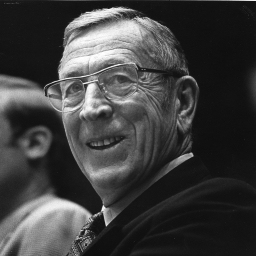One of the great pleasures of this writing game is to receive the occasional effusive email from fans who really enjoy my work. Because my books so often involve adolescent protagonists (usually, but not always, in secondary roles) I hear from many young readers who are almost always complimentary of the stories and the characters.
Of all my books, none gets more fan mail from young people than Nathan’s Run. In that story, the main character, Nathan Bailey, is a 12-year-old fugitive from the law, having admitted to killing a juvenile detention center guard and running away. While it’s a thriller at its face, it explores some pretty complex themes about how little voice children have in society. In schools where it’s not banned, it is frequently taught. (The book contains, by one irate woman’s accounting, 409 unacceptable words.)
Whether in fulfillment of a class assignment or of their own volition, it’s not uncommon for students to contact me via email to “interview” the author. On these requests, I am a sure thing. I never say no, and I always try to respond promptly.
There’s a fine line, however, that I won’t cross, and that is the one where I sense that the student is essentially trying to get me to write his book report for him. On biographical details, for example, I point them toward my website, or to other places where they would have found the information if they had tried. I also shy away from questions regarding theme, symbolism, and other very English-classy subjects where I imagine the teacher wanted them to do some analysis on their own.
Last Sunday, I received this email from a boy named, shall we say, Tom:
hi john i have a question i have read yur book now i have a project to do wit it i kinda wanted to ask yuh how did nathan solve the problem and what was the turning point
That is cut and pasted in exactly the format I received it. Clearly, it was easier to write an email than it was to read a book. I have no idea how old “Tom” is, but if he’s been assigned to read Nathan’s Run, he’s got to at least be in middle school. Plus, his email strummed another sensitive note: respect for the language. I understand that kids are kids, and that texting language is different than real English, but I figure that I owe some allegiance to the rules of grammar. So I donned my dad hat and took the high ground with the following response:
Hi, Tom.
Nice to hear from you–sort of. Let’s start over, with you recognizing that I am an author, and that punctuation, spelling and grammar matter. If you ask some properly formatted questions, I’d be happy to address them
Best regards,
John Gilstrap
That was me doing my part to be cooperative, yet not compromise my principles. To this, he responded:
suck my dick Nigga
Again, that’s a quote; word choice and punctuation are his alone.
Well, goodness. I confess that when I first read his response, I laughed. It was so . . . startling. But then I thought about the fundamental lack of respect, and my amusement turned to concern. I’m sure that in his mind my reply showed disrespect, but come on. To be really honest, I have second- and third-guessed myself about even posting this here, for fear of seeming like a bully. At least I changed his name.
I’ll resist the urge to draw a larger conclusion about the state of adolescents today, and instead look to my son and his friends as the models for the actual norm. (Okay, their adolescence is 10 years in the rearview mirror, but work with me.) I have often thought that I would like to teach writing at the high school level, but when stuff like this happens, I have to check myself. My hat goes off to those who do teach, and who find a way to control their anger despite their instinct to smack a kid out of his chair.
Yep, I’m becoming that old guy down the street.


